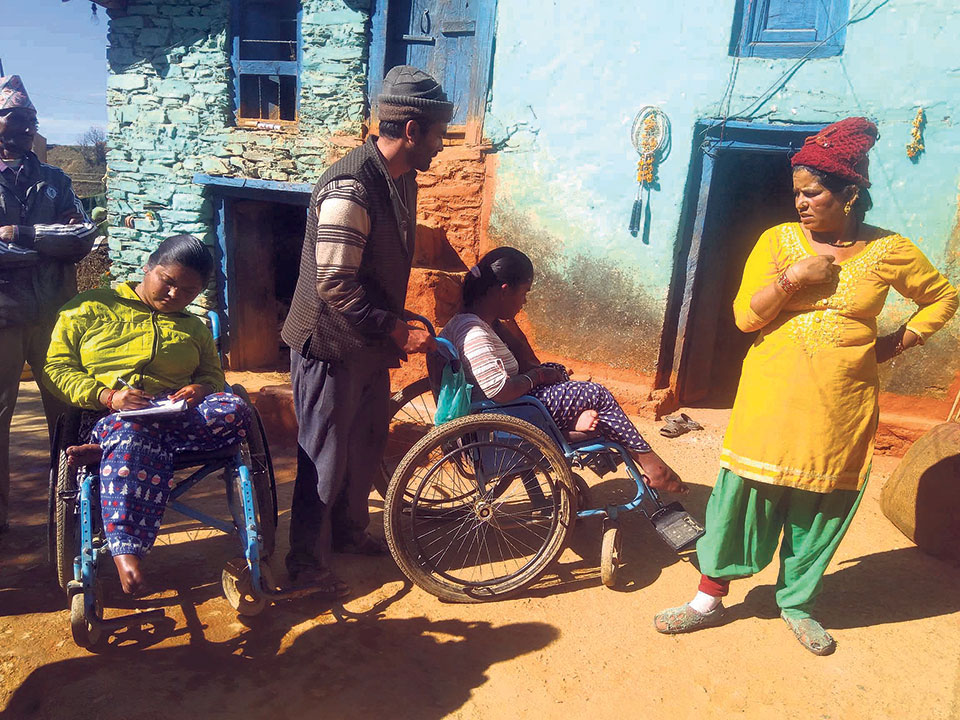Accurate Portrayals: Addressing The Need For Authentic Asian And Asian American Stories

Table of Contents
The Prevalence of Stereotypes and Misrepresentation
The media's depiction of Asians and Asian Americans is often riddled with stereotypes that reduce complex individuals to one-dimensional caricatures. This misrepresentation not only perpetuates harmful biases but also limits the understanding and appreciation of the rich diversity within these communities.
The "Model Minority" Myth and its Harmful Effects
The persistent "model minority" myth paints Asians and Asian Americans as inherently intelligent, hardworking, and successful, implicitly suggesting a lack of struggles or challenges. This seemingly positive stereotype is profoundly damaging. It ignores the vast socioeconomic disparities within the Asian community, erases the struggles faced by many individuals and families, and fosters unhealthy competition and internalized oppression.
- Internalized Oppression: Individuals may feel immense pressure to conform to this idealized image, leading to feelings of inadequacy and shame if they don't meet these unrealistic expectations.
- Pressure to Achieve: The constant pressure to excel academically and professionally can lead to significant mental health challenges, such as anxiety and depression.
- Erasure of Struggles: The "model minority" myth obscures the real struggles faced by many Asian Americans, including issues of poverty, discrimination, and limited access to resources.
Statistics reveal alarming mental health disparities within the Asian American community. The pressure to uphold the "model minority" image, coupled with the stigma against seeking help, contributes to underreporting and untreated mental health conditions. This highlights the urgent need for more nuanced and accurate portrayals that reflect the full spectrum of Asian and Asian American experiences.
Other Harmful Stereotypes
Beyond the "model minority" myth, other damaging stereotypes persist: the submissive Asian woman, often hypersexualized and devoid of agency; the nerdy Asian man, perpetually awkward and lacking social skills; and the perpetually foreign outsider, forever an "other" unable to fully assimilate.
- The Submissive Asian Woman: Movies and television shows frequently depict Asian women as subservient, hypersexualized objects, devoid of agency and defined solely by their relationship to men. This reinforces harmful gender roles and objectification.
- The Nerdy Asian Man: This stereotype, often depicted in comedies, reduces Asian men to one-dimensional characters lacking masculinity and charisma.
- The Perpetually Foreign Outsider: This stereotype emphasizes a character's foreignness, regardless of their citizenship or length of residency, portraying them as perpetually unable to fully integrate into American society.
These stereotypes negatively impact the self-perception of Asian and Asian Americans, leading to feelings of inadequacy, shame, and a lack of belonging. Accurate portrayals are essential to counter these harmful representations and foster a more positive and realistic self-image.
The Importance of Authentic Representation
Moving beyond stereotypes, accurate portrayals are crucial for promoting understanding and empowering marginalized voices.
Promoting Cultural Understanding and Empathy
Authentic representation fosters cultural understanding and empathy by showcasing the complexity and diversity of Asian and Asian American experiences. Instead of relying on tropes and generalizations, accurate portrayals delve into the nuances of individual stories, celebrating the richness and diversity of Asian cultures.
- Examples of Successful Portrayals: Shows like "Fresh Off the Boat" and "Kim's Convenience," while not without their critiques, offer more nuanced depictions of Asian family life than previously seen on mainstream television.
- Showing a Wide Range of Experiences: It's vital to depict a wide range of experiences within the Asian and Asian American communities, encompassing different nationalities, socioeconomic backgrounds, and perspectives. Focusing solely on one specific aspect of culture is a disservice to the community's overall complexity.
By showcasing a multiplicity of experiences, media can build bridges between different cultural groups, fostering greater empathy and understanding.
Empowering Asian and Asian American Voices
Centering Asian and Asian American voices in the storytelling process is paramount. This means actively seeking out and hiring Asian and Asian American writers, directors, actors, and producers.
- Benefits of Authentic Casting: Authentic casting ensures that characters are portrayed with nuance and accuracy, avoiding the pitfalls of misrepresentation. It also provides role models and positive representation for young Asian and Asian Americans.
- Impact on Self-Esteem: Seeing oneself reflected authentically in media significantly impacts the self-esteem and identity formation of young Asian and Asian Americans. It provides a sense of belonging and validation that can be transformative.
Empowering Asian and Asian American storytellers ensures that the narratives reflect lived experiences and resonate authentically with the community.
Strategies for Achieving Accurate Portrayals
Creating accurate portrayals requires conscious effort and commitment to authentic representation.
Collaboration and Consultation
Filmmakers and content creators must prioritize collaboration with experts and community members to ensure authenticity and avoid perpetuating harmful stereotypes.
- Researching the Culture: Thorough research is essential to understand the nuances of different Asian cultures and avoid perpetuating harmful misconceptions.
- Consulting Cultural Advisors: Working with cultural advisors who can provide expert guidance on language, customs, and cultural sensitivities is crucial.
- Hiring Diverse Teams: Creating diverse production teams, both in front of and behind the camera, ensures multiple perspectives and avoids the homogenization of Asian and Asian American experiences.
Moving Beyond Tokenism
Superficial representation, or tokenism, is insufficient. True representation requires developing fully realized characters with complex motivations, backstories, and relationships, not simply including one Asian character to check a diversity box.
- Examples of Tokenism: A single Asian character who serves as a comedic sidekick or a romantic interest, without depth or agency, exemplifies tokenism.
- Developing Fully-Realized Characters: Meaningful representation requires creating characters with complex personalities, motivations, and internal conflicts, just like characters from any other background.
Moving beyond tokenism requires a fundamental shift in how Asian and Asian American characters are conceived and developed.
The Path Forward for Accurate Portrayals of Asian and Asian American Stories
In conclusion, accurate portrayals of Asian and Asian Americans are not merely a matter of representation; they are a crucial step towards dismantling harmful stereotypes and fostering greater understanding. The prevalence of misrepresentation underscores the urgent need for change. By prioritizing authentic representation, empowering Asian and Asian American voices, and moving beyond tokenism, we can create a media landscape that reflects the richness and diversity of these communities. We must actively seek out and support media that offers accurate and nuanced portrayals, promote critical viewing and discussion, and advocate for more opportunities for Asian and Asian American storytellers. By demanding and celebrating accurate portrayals, we can collectively work towards a more equitable and representative media landscape that reflects the richness and diversity of Asian and Asian American experiences.

Featured Posts
-
 Keanu Reeves John Wick 5 Officially Confirmed By Lionsgate
May 11, 2025
Keanu Reeves John Wick 5 Officially Confirmed By Lionsgate
May 11, 2025 -
 Houston Hosts Prestigious Astros Foundation College Classic
May 11, 2025
Houston Hosts Prestigious Astros Foundation College Classic
May 11, 2025 -
 Debbie Elliott A Comprehensive Overview
May 11, 2025
Debbie Elliott A Comprehensive Overview
May 11, 2025 -
 Heidenheim Secures Crucial Victory Over Kiel In Relegation Battle
May 11, 2025
Heidenheim Secures Crucial Victory Over Kiel In Relegation Battle
May 11, 2025 -
 Rory Mc Ilroy And Shane Lowry Face Long Road To Repeat Zurich Classic Win
May 11, 2025
Rory Mc Ilroy And Shane Lowry Face Long Road To Repeat Zurich Classic Win
May 11, 2025
